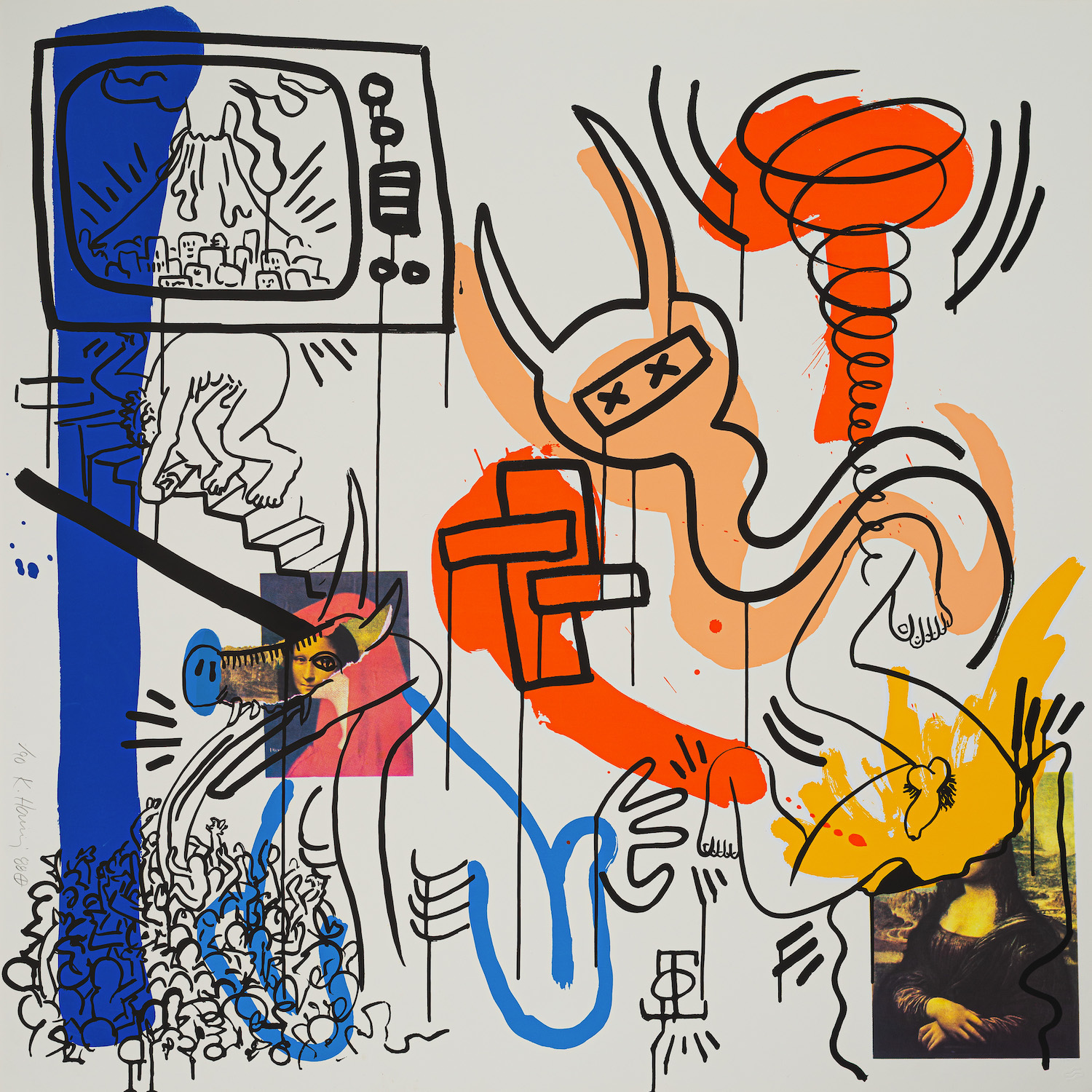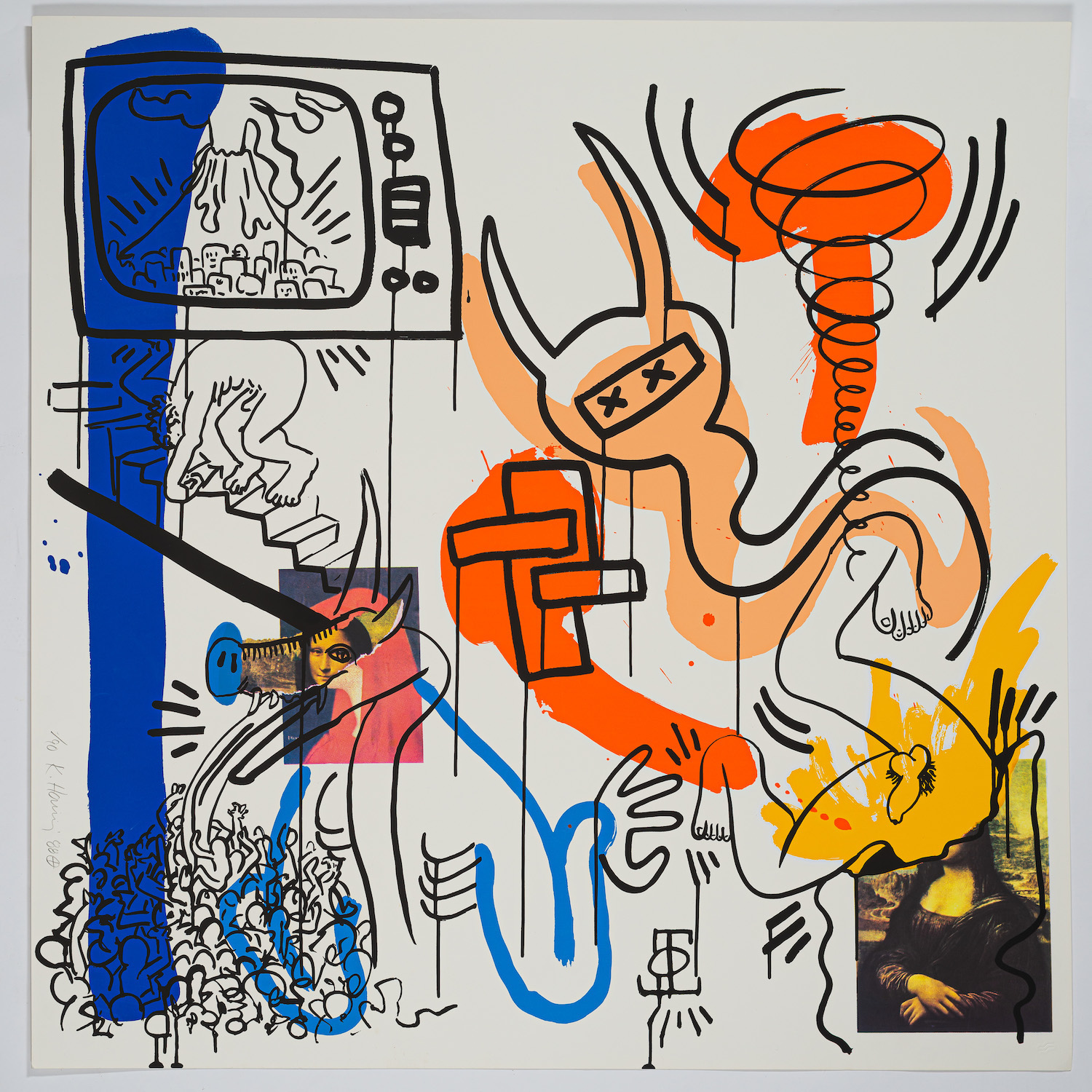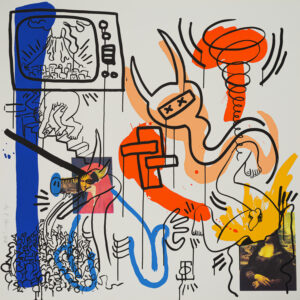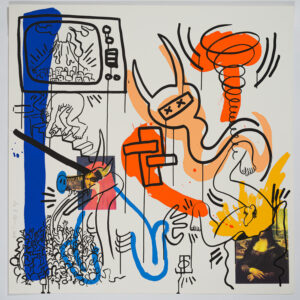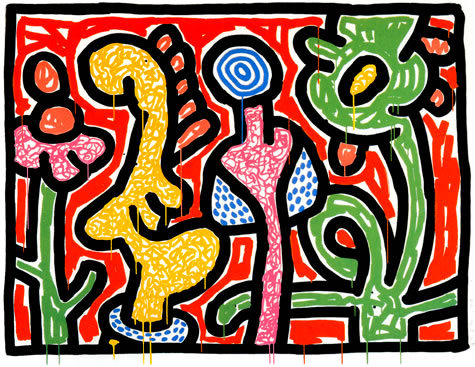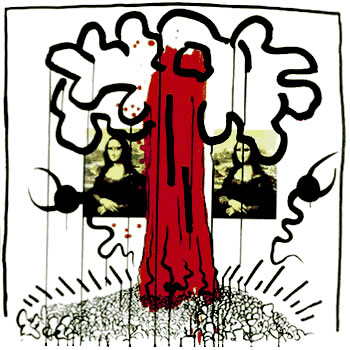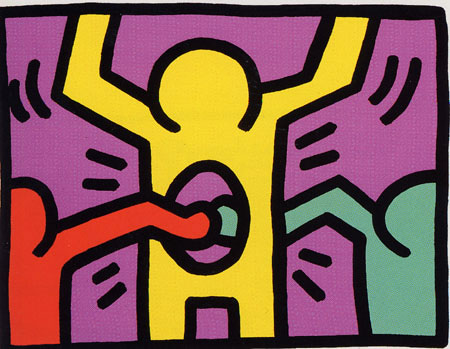Apocalypse (7) by Keith Haring thrusts its audience into an intense, chaotic world, mirroring William Burroughs‘ frenzied narrative of a world spiraling into disarray. Amidst familiar symbols that have come to define the series—like Mona Lisa and Saint Fabiola, devilish sperm, sprawling staircases, anonymous crowds, and formidable beasts—the scene is dominated by a sinister, oversized sperm, its devil horns emphasizing its increasing menace as the series unfolds.
Page 7
At my back – faster and faster – I always hear hurry up – energy ground down into – please its time closing – sidewalks and street by billions of feet and tires erupt from manholes and tunnels break out with volcanic force let it come down careening subways faster and faster stations blur by, Pan whips screaming crowds with flaming pipes millions of faces look up at the torn sky OFF THE TRACK OFF THE TRACK the planet is pulling loose from its moorings, careening off into space spilling cities and mountains and seas into the Void faster and faster.
The backdrop of this apocalyptic panorama presents a television, showcasing a volcano in its explosive wrath, poised to obliterate the metropolis beneath. Living through an era marked by rapid technological advancements, Haring portrayed technology, particularly the TV, as an emblem of overarching manipulation, cautioning against its capacity to subvert humanity.
Religious themes are evident as Haring evokes the imagery of the final judgment. The artwork features a multitude of human figures desperately climbing the grotesque tongue of a crying demon marked by a pig’s snout and horns. Ingeniously melding collage with his signature cartooning, Haring overlays the Mona Lisa’s face onto the profile of Saint Fabiola on the demon’s head. Saint Fabiola, known for establishing hospitals and personally caring for the sick, symbolizes the healthcare system. For many of Haring’s ailing friends, this system presented a façade of assistance but proved powerless against the devastating AIDS epidemic.
Above, a tormented figure, reminiscent of Sisyphus, struggles up a staircase, bearing the weight of the very television broadcasting the volcanic destruction on his naked back. A malevolent spiral emerges from a man consumed by the headless Mona Lisa, casting an ominous shadow with its orange-hued mushroom cloud, underscoring the indiscriminate wrath of the AIDS epidemic,
The de-faced Mona Lisa reappears, her identity erased, yet consuming a man with his lower half exposed, echoing the merciless grip of a python. This anonymity—evident across the canvas—symbolizes the faceless masses affected by AIDS, a chilling commentary on societal indifference.
Apocalypse (7) stands as a haunting testament to Haring’s feelings on life and humanity, reflecting the pervasive despair and turmoil felt amidst the AIDS crisis.

